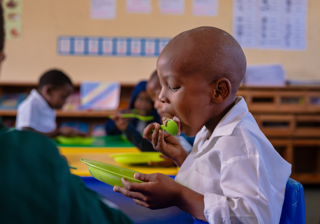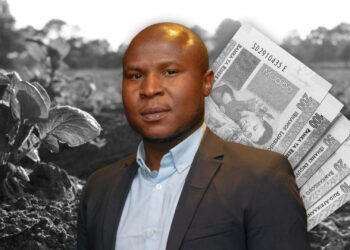South Africa’s FATF greylist removal is a major win for agriculture, cutting trade finance costs by an estimated $60 million annually. NAMC trade economist Buhlebemvelo Dube explains how it restores global confidence and boosts competitiveness for key agricultural exports.
South Africa’s removal from the Financial Action Task Force (FATF) greylist marks far more than a symbolic rehabilitation. It represents the easing of an invisible tax on credibility that has, for two years, raised the cost of capital and complicated cross-border trade.
By June 2025, the National Treasury and the Financial Intelligence Centre had implemented all twenty-two reforms required by the FATF, thus strengthening beneficial-ownership disclosure, tightening enforcement, and improving prosecutorial capability. The FATF’s mid-year progress update confirmed that these measures were “substantially completed,” clearing the way for South Africa’s full delisting.
In economic terms, the greylist functioned as a country-specific risk premium. Research by La Trobe University found that jurisdictions under FATF monitoring typically lose 7 to 8% of GDP in capital inflows and around 3% in foreign direct investment, as financial institutions demand higher due diligence margins.
The experience aligns with modern macro-financial theory that when credibility weakens, lenders price uncertainty into spreads, tightening the credit channel and suppressing investment. As monetary theorist Jordi Galí has shown, these credibility shocks widen the “external finance premium” that separates policy rates from real-economy borrowing costs. Removing that premium restores transmission efficiency, particularly for trade-exposed sectors such as agriculture.
📢 Stand Up, Be Seen, Be Counted
We want to provide you with the most valuable, relevant information possible. Please take a few minutes to complete this short, confidential survey about your farming practices and challenges. Your feedback helps us tailor our coverage to better support the future of agriculture across Mzansi.
Impact on agricultural exports
For agricultural exporters, credibility is capital. Agribusiness operates through short-term foreign-currency credit lines and relies heavily on clean correspondent-bank relationships. Studies of South Africa’s financial markets during the greylist period found a modest but persistent rise of about 20 to 30 basis points in dollar-denominated trade-finance costs as international banks applied stricter due diligence.
In a citrus-export industry where margins hover below 10%, that wedge was not theoretical; it cut directly into competitiveness. Delisting now removes that surcharge by reducing the perceived compliance risk embedded in every payment, every letter of credit, and every shipping document.
Related stories
- SA agri exports eye $29 billion Indonesian market
- Exports up, jobs down: Why agri-trade leaves rural workers behind
- Macadamia exports adapt to changing markets, US tariffs
The data underline what is at stake. For instance, between 2020 and 2024, South Africa’s agricultural exports expanded from roughly US$10.3 billion to US$13.7 billion, which was a gain of a third despite global supply-chain volatility. The export basket remains dominated by documentation-intensive value chains such as fresh grapes (US$839 million), maize (US$814 million), oranges (US$759 million), mandarins (US$582 million), and apples (US$577 million). Wine, lemons, wool, and raw sugar add nearly another billion dollars.
These sectors depend on precise logistics, transparent payments, and quick confirmation of trade finance. Any friction in compliance or correspondent-bank approval translates into demurrage costs, cold-chain losses, and delayed cash flow. With the greylist lifted, transaction times shorten, rejection risks fall, and working-capital efficiency improves across the value chain.
Geographically, the recovery potential is broad. The Netherlands remained South Africa’s largest agricultural market in 2024 at US$1.58 billion, followed by Zimbabwe, the United Kingdom, Botswana, and Namibia. Yet more than 60% of exports move through economies that enforce stringent anti-money-laundering protocols, particularly the European Union, the United Kingdom, the United States, and Gulf states.
For these partners, FATF delisting is an assurance that South Africa’s financial system now meets global compliance norms, reducing reputational risk and easing counterparty constraints. In practical terms, it lowers confirmation fees, facilitates pre-shipment finance, and accelerates the release of export proceeds.
Building investor confidence
There is also a broader capital-formation effect. Evidence from remittance studies suggests that every one-point increase in compliance costs reduces financial flows by about 2%. The same logic applies to trade finance, which removes the compliance friction, freeing liquidity that can be reinvested in packhouses, renewable energy for cold storage, and processing facilities.
The National Treasury’s progress report notes that since 2023, asset-recovery rates and DNFBP supervision have improved sharply, which signals that the institutional fabric supporting trade integrity is strengthening. These gains build the foundation for inclusive agribusiness investment, benefiting emerging farmers who were most constrained by risk-averse banks during the greylist period.
Market analysts warned that an extended stay on the greylist could have elevated South Africa’s sovereign-risk spread and deterred portfolio inflows. Instead, credible reform now offers the reverse through narrower spreads, improved investor sentiment, and renewed appetite for agribusiness FDI.
Lower risk premia feed through to cheaper borrowing, enhancing the viability of downstream investments in processing, packaging, and logistics, which are areas critical for capturing greater value within the agricultural supply chain and for aligning with sustainability standards under the EU Green Deal and AfCFTA frameworks.
None of this guarantees automatic resilience. Our logistics constraints, energy unreliability, and water-resource pressures remain structural risks; however, credibility repairs amplify the effectiveness of policy interventions. Transparent institutions, consistent enforcement, and digital trade documentation reduce the transaction costs that have long constrained South African exporters.
Economists from Joseph Stiglitz to Jean Tirole have shown that when information asymmetry falls, investment rises because trust itself becomes a productive asset. If delisting lowers trade-finance spreads even modestly, say by 20 basis points, the savings on 2024’s agricultural export turnover exceed US$60 million a year. Those gains compound over time, stimulating private investment without fiscal subsidy. For a sector that employs nearly a million people and anchors rural incomes, the economic multiplier is substantial.

EARLY-BIRD TICKETS ARE AVAILABLE NOW!
Africa’s biggest youth-in-agriculture gathering is back – and it’s only getting bigger!
Keeping up trade momentum
The biggest challenge now is to lock in the momentum. Continued investment in the Financial Intelligence Centre’s analytics, integration of customs and banking data, and digitisation of port clearance will cement the reforms that restored FATF confidence. For policymakers, the priority should be ensuring that reduced compliance costs also reach smallholder farmers and emerging exporters, widening participation in global value chains.
South Africa’s exit from the greylist thus represents more than the removal of a stigma; it signals the restoration of credibility as an economic resource. Trust, which was once lost, is now earned, and it translates directly into lower financing costs, faster market access, and renewed confidence in the country’s capacity to compete.
For agribusiness, that credibility is not abstract, but it is now going to be the new engine of our trade momentum.
- Buhlebemvelo Dube is a trade economist at the National Agricultural Marketing Council (NAMC). The views and opinions expressed in this article are those of the author and do not necessarily reflect the views or positions of Food For Mzansi.
READ NEXT: Ernest shows how smarter grazing can fight climate change

















